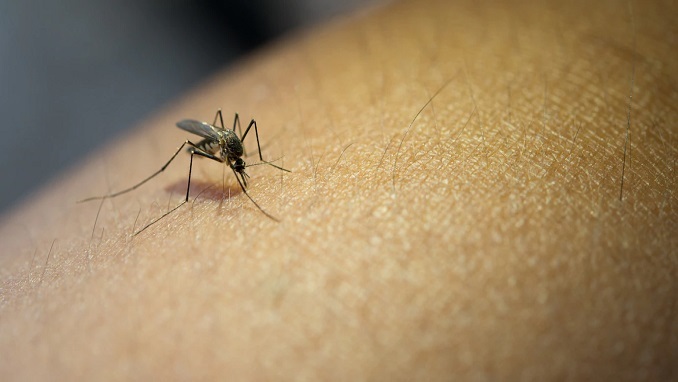We were always aware that mosquitoes can be choosy of the people they swarm around (while totally avoiding others) – but new research shows people already infected with certain mosquito-borne diseases are especially attractive to these tiny bloodsuckers.
Science reports that people infected with dengue and Zika create more opportunities to spread these diseases – by smelling more appealing to mosquitoes. Both pathogens, as the article notes, “travel from person to person in Aedes aegypti mosquitoes, which also transmit yellow fever and chikungunya viruses.”
Mice infected with dengue and Zika produce much less RELMa, and when they fed the mice isotretinoin, a vitamin A derivative that increases RELMa, the rodents attracted fewer mosquitoes, according to Tsinghua University research published in Cell magazine.
Mosquitoes are drawn to acetophenone, which is kept in check by a protein called RELMa, Science explains.
The next steps for the research team, as ABC News Australia reports, “are to pinpoint the receptors that allow mosquitoes to sniff out acetophenone, and knock out the genes associated with them.”
As Good Day Bio notes, biotech can help keep mosquito-borne diseases in check. To slow the spread of the diseases, humans with dengue and Zika could be given isotretinoin.
In addition, the diseases could be detected faster and without a blood sample by using “electronic noses,” a technology “developed in order to analyze complex mixtures of volatiles in a way parallel to biologic olfaction.”
Decimating mosquito-borne disease with gene editing
As Good Day BIO reported last year, gene editing is among the biotech solutions used to stop mosquito-borne diseases.
CRISPR is being used to ensure disease-carrying mosquitoes aren’t quite so dangerous to humans making people “effectively invisible” to them – by eliminating the mosquito’s light-sensing receptors. It is also used to develop malaria-resistant mosquitoes incapable of transmitting the disease to humans.
An initial trial in the Florida Keys showed that gene editing is also promising in suppressing mosquito populations with the gene-edited mosquitoes behaving “as planned.”
FKMCD-Oxitec Mosquito Project’s next phase will launch July 7, with many Keys residents volunteering to host Oxitec’s mosquito boxes on their property. This project can prove itself quite useful in solving the issue of dengue which, as Good Day BIO previously noted, “has increased 30-fold over the past half-century, driven by warming climates and the resulting increase in mosquito populations”.
So, if biotech regulations keep up with the science, “biotech can help us solve these issues in innovative ways.”




